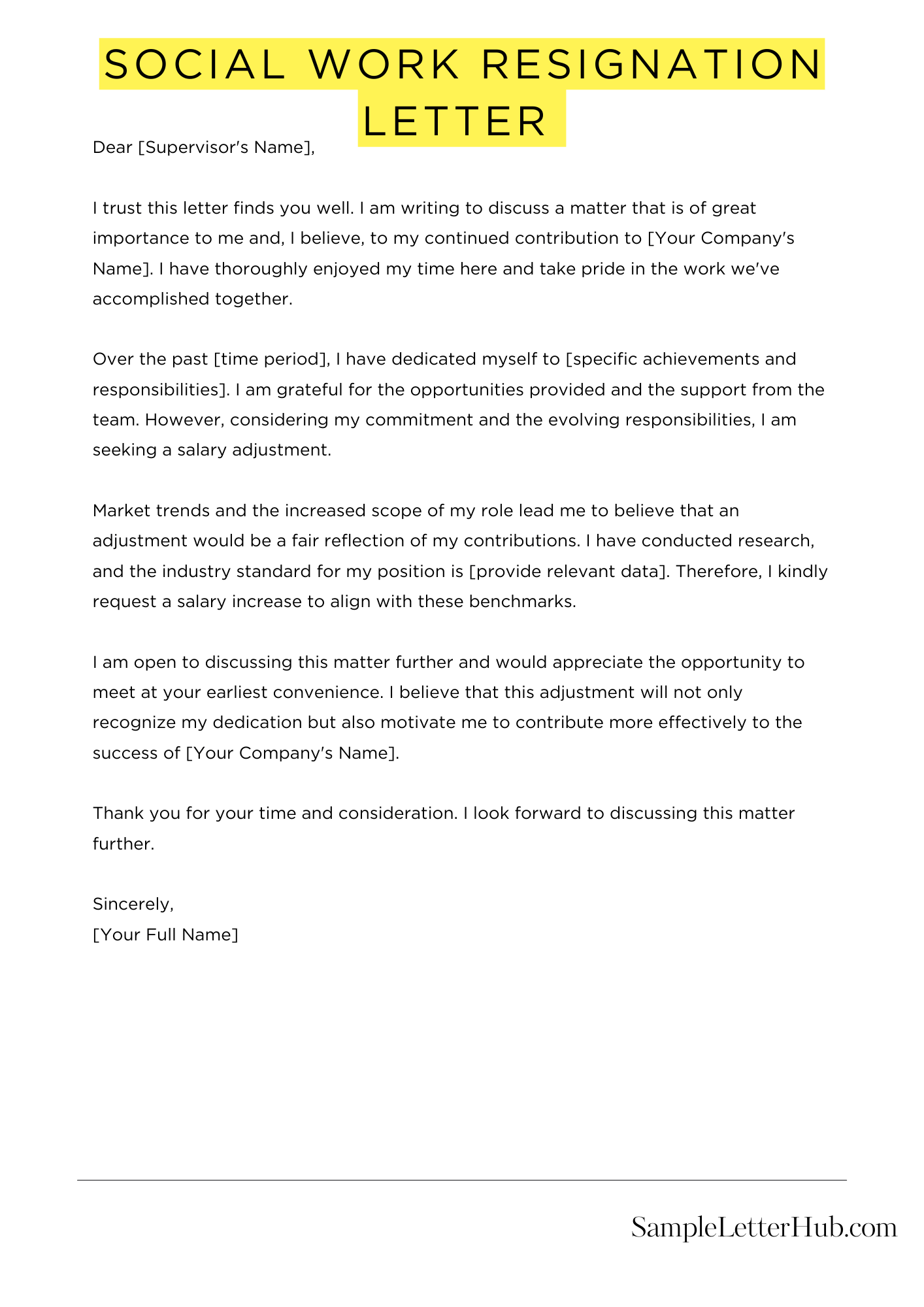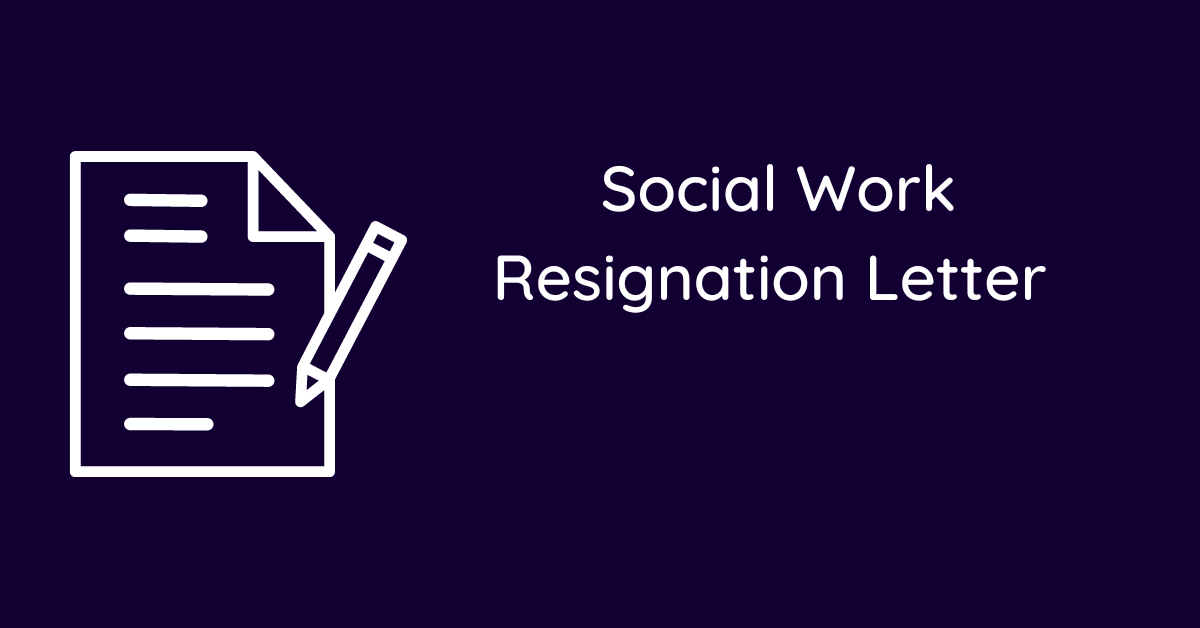When it comes to leaving a social work position, a well-written resignation letter is key. In this article, we’ll share an example of a social work resignation letter that you can use as inspiration.
A clear and professional resignation letter is a great way to leave a job on good terms. It should be polite and humble, and it should clearly state your decision to leave. It’s also a good idea to express your gratitude for the opportunity to work at the organization.
Below, we’ve included a template social work resignation letter that you can use as a starting point. Feel free to adapt it to fit your own circumstances.
Social Work Resignation Letter
Dear [Recipient Name],
Please accept this letter as formal notification that I will be resigning from my position as a Social Worker with [Organization Name], effective [Last Date of Employment].
I have enjoyed my time at [Organization Name] and am grateful for the opportunities I have been given. I have learned a great deal and have grown both professionally and personally.
I would like to thank you for your support and guidance during my tenure. I wish you and [Organization Name] all the best in the future.
Sincerely,
[Your Signature]
Short Social Work Resignation Letter Sample
Please accept this letter as formal notification that I am resigning from my position as Social Work at [Company Name]. My last day of employment will be [Your Last Day]. Thank you for the opportunity to grow and learn during my time here. I wish you and the company continued success. I am happy to assist in the transition process to ensure a smooth handover of my responsibilities.
I wish you all the best with your social work resignation letter.
When it’s time to say farewell, expressing your gratitude and best wishes can make the transition smoother:

How to Write a Social Work Resignation Letter
1. Start with a Professional Salutation
Begin your letter with a formal salutation, such as “Dear [Supervisor’s Name].”
2. State Your Intention to Resign
Clearly state your intention to resign from your position as a social worker. Include the date of your last day of employment.
3. Express Your Appreciation
Take this opportunity to express your gratitude for the opportunity to work as a social worker. Mention specific experiences or individuals that have made your time there meaningful.
4. Offer to Assist in the Transition
Let your supervisor know that you are willing to help with the transition during your notice period. This could include training your replacement or assisting with ongoing projects.
5. Close with a Professional Tone
End your letter with a professional closing, such as “Sincerely,” followed by your signature and typed name.
6 Frequently Asked Questions About Social Work Resignation Letters
Social work is a demanding profession that requires a lot of dedication and passion. However, there may come a time when you need to resign from your social work position. If you’re in this situation, it’s important to write a professional and respectful resignation letter.
Here are the six most frequently asked questions about social work resignation letters, along with their answers:
1. What should I include in my resignation letter?
Your resignation letter should include the following information:
- Your name and contact information
- The date
- The name of the person you are resigning to
- Your position
- Your last date of employment
- A brief statement expressing your gratitude for the opportunity to work at the organization
2. How should I format my resignation letter?
Your resignation letter should be formatted in a professional manner. Use a standard font, such as Times New Roman or Arial, and 12-point font size. Left-align your text and use single spacing.
3. What should I say in my resignation letter?
In your resignation letter, you should be clear and concise. State your intention to resign and your last date of employment. You can also express your gratitude for the opportunity to work at the organization and wish the organization well in the future.
4. Do I need to give a reason for resigning?
You are not required to give a reason for resigning. However, if you feel comfortable doing so, you can briefly state your reason for leaving.
5. What if I’m not sure what my last date of employment is?
If you’re not sure what your last date of employment is, you should check with your supervisor.
6. What should I do after I submit my resignation letter?
After you submit your resignation letter, you should meet with your supervisor to discuss your departure. You should also work with your supervisor to ensure a smooth transition during your departure.
Before making the decision to resign from your job, it’s essential to consider the legal aspects:
Understanding your emotions after quitting your job is important. Explore why you might be feeling sad:
Related
- Resignation letter sample
- Forced resignation letter
- Resignation letter due to going abroad
- Resignation letter due to marriage
- Resignation letter due to other opportunity
- Resignation letter due to mistake

